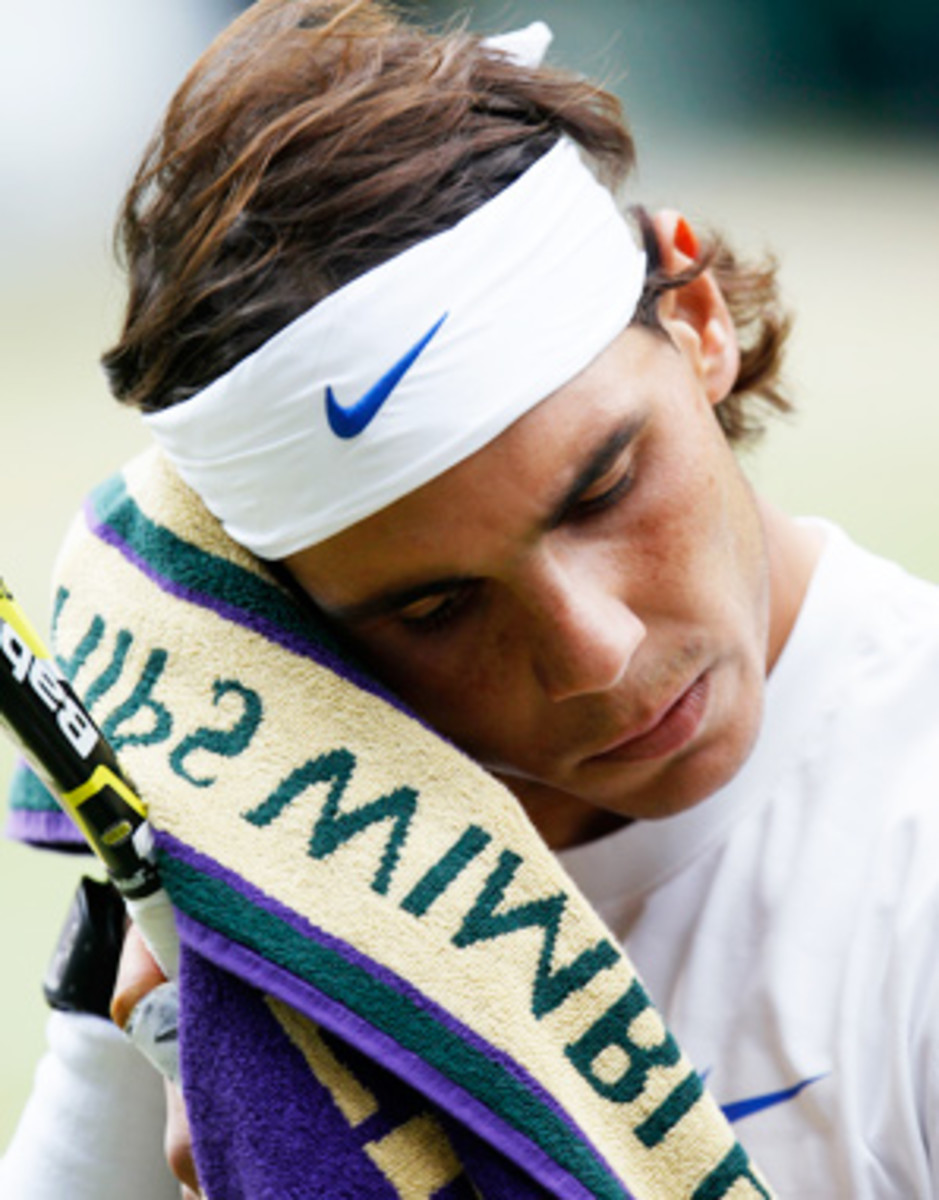Forget a shot clock, time between points only builds the suspense
For some reason, I'm not put off by time violations in tennis. I've witnessed countless matches at the majors, both momentous and forgettable, and I've never once thought to myself, "Get on with it, for cryin' out loud!" And I can't imagine anyone actually being in favor of a time clock.
The issue got considerable play at this year's Wimbledon, largely because the primary violators came straight from the penthouse. Rafael Nadal, at first glance an untamed beast of a competitor, is irrevocably bound by nerdy superstition and drawn-out routines. The rarely enforced rule limits players to 25 seconds (20 at the majors) between the conclusion of a point and the ensuing serve, yet eventual champion Novak Djokovic occasionally took up to 40 seconds during his third-round match against Marcos Baghdatis.
In an interview with The New York Times, the esteemed John Newcombe revealed his disdain: "I wouldn't stand for it. I would say to the umpire before the match, 'I want you to know that if we go over 25 seconds with the ball bounce, I'm complaining.' In fact, if he went over a certain number of ball bounces, I would turn around and walk away. I wouldn't stand there and receive it.
"It's an old tactic," Newcombe said. "Jimmy Connors used to bounce the ball four times, but when he was down 15-30 or 15-40, he'd bounce it 14 times."
There's something about tennis that, to me, makes all of this acceptable. The nature of the sport gives observers time to think and analyze (it's a wonderful sport to cover, in that sense). There's no doubt I'd get ticked off by a really awful player slowing things down, but in the elite atmosphere of the pro tours, I think most fans appreciate the ever-growing drama between points. I find it interesting, not annoying, when a player strategically changes the pace. Connors and John McEnroe were masters of the mind game, and let's face it, players are all alone out there, left to their own devices. Spectators come to recognize the gentlemen, and the rogues, and thus form a template for opinion.
I don't see how a shot clock would work. What happens if there's a sudden commotion in the stands, or a delay while fans get seated, or a crazy point that finds a player sprawled face-down in the corner of the arena -- or actually in the stands? What if a standing ovation breaks out, and everyone's basking in the glory of a special moment? The shot clock would be rendered irrelevant, and now you're leaving exceptions in the hands of the chair umpire -- a responsibility he'd rather not accept.
(Also: Picture a scene at the U.S. Open. Tense moment, the shot clock's winding down on Djokovic, and some noisy drunk counts it down: "Four! Three! Two! One!")
I wouldn't mind a few changes in the realm of lollygagging. There's no excuse for the "bathroom break" when it has nothing to do with bodily functions, but rather a forced change of mood. Players have abused this rule for years, trying to gain an edge they do not deserve, and the allotted time should be both stringent and strictly enforced. Show up late from one of these dubious forays, and it's a point penalty.
We've probably seen enough of the towel obsession, as well. Thanks mostly to Nadal, who towels off after every point (inexcusable, when you think about it), players are asking ball kids to be towel attendants, too, and it's a lamentable waste of time.
If the players from past eras could play a three-hour match in sweltering heat without towels (until the changeovers, of course), so can today's generation.





